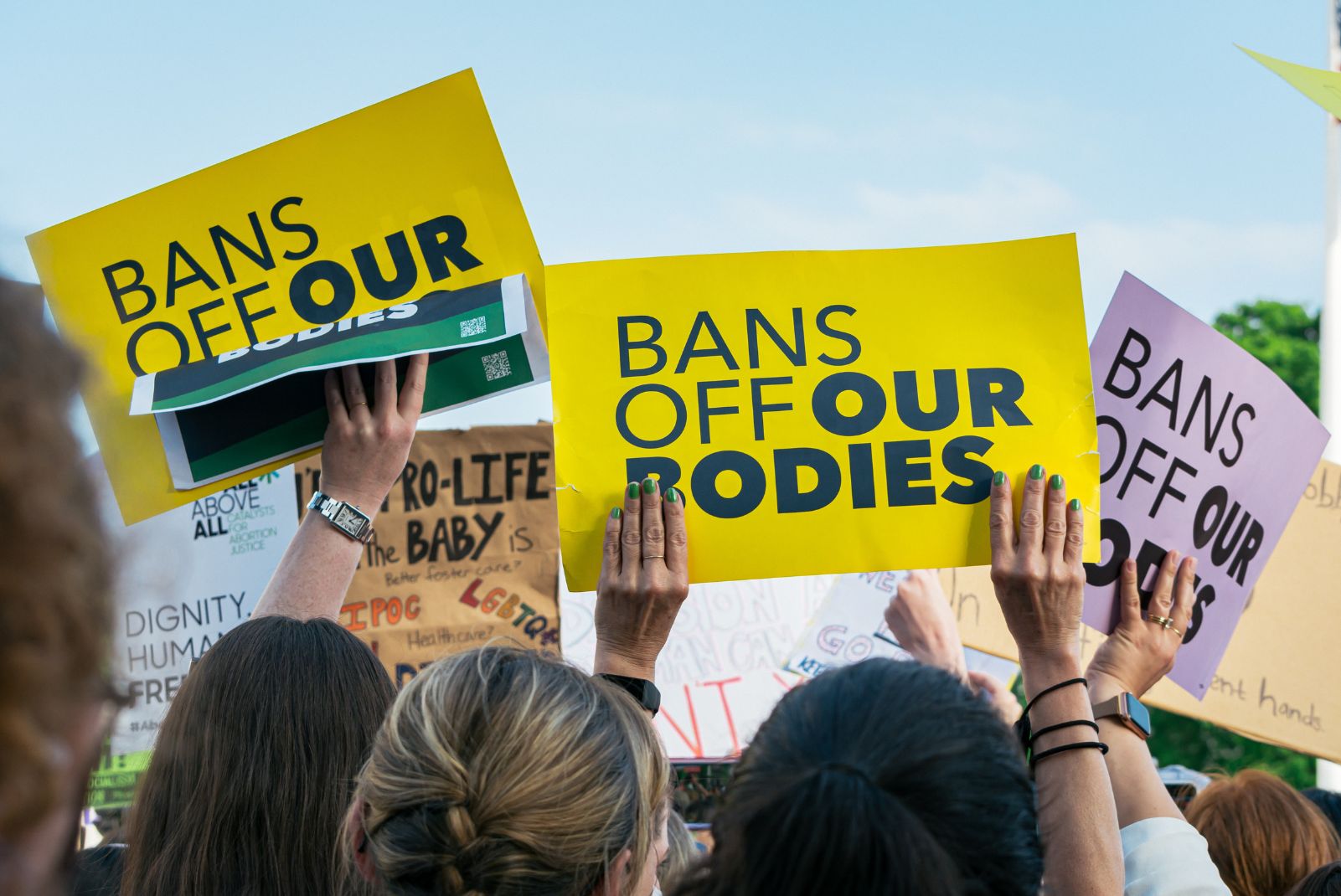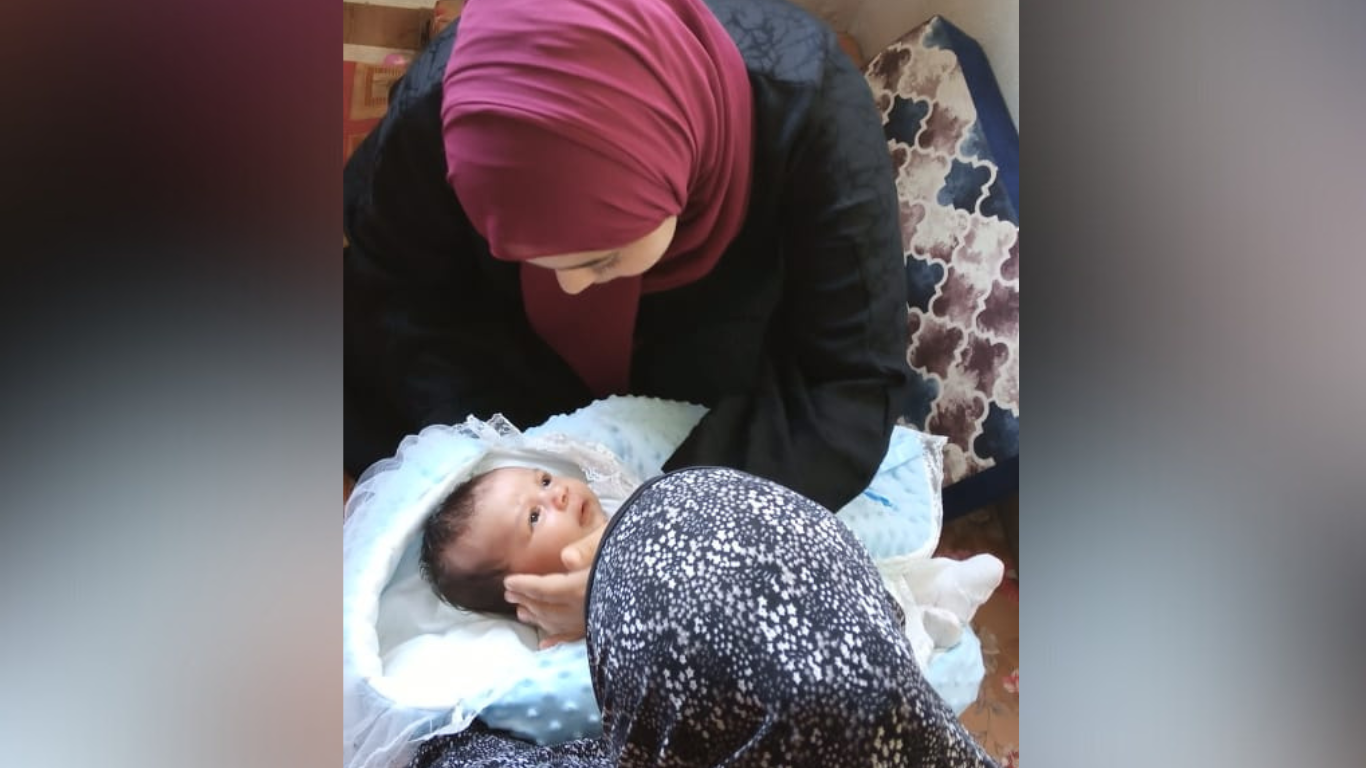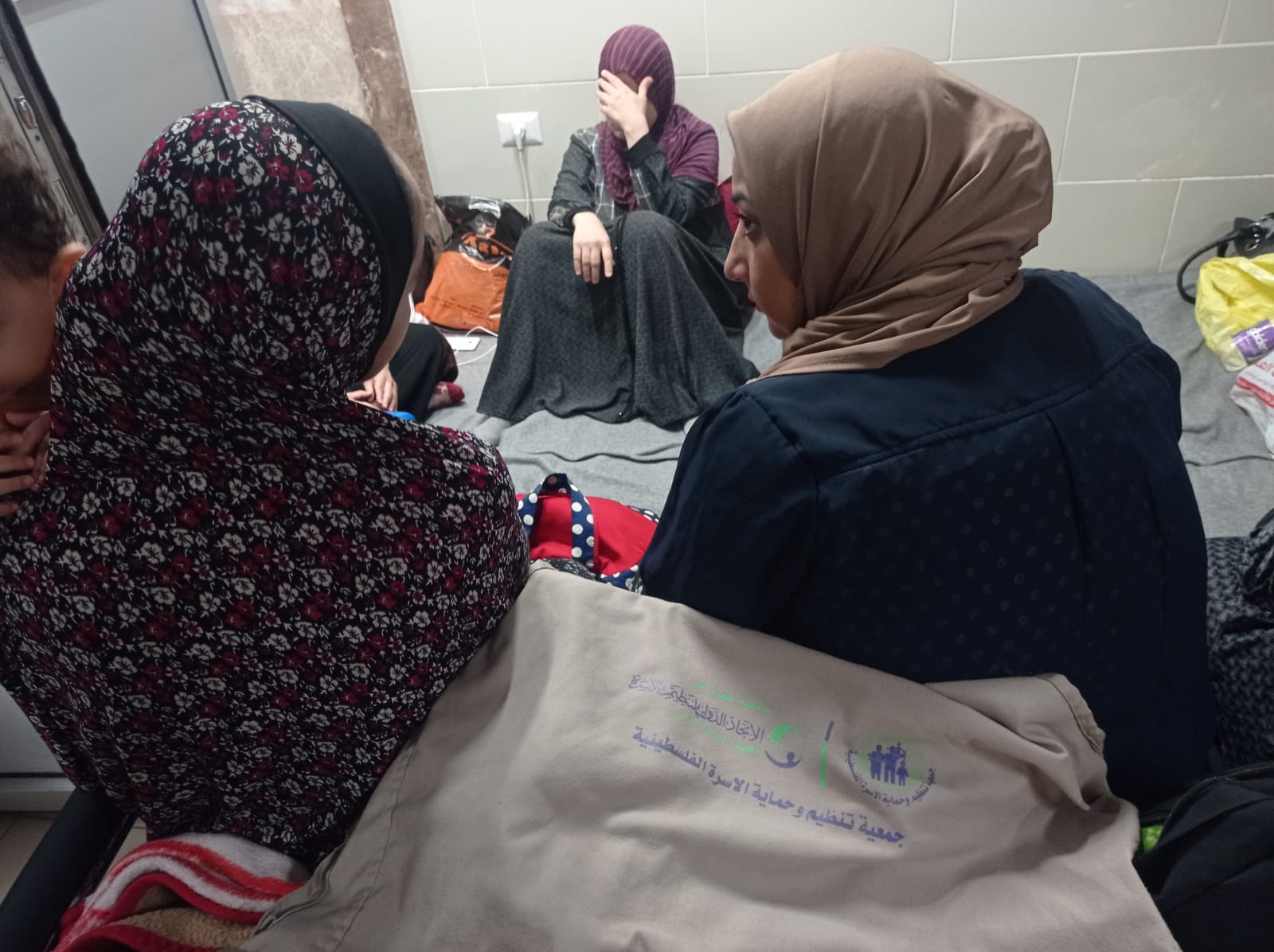Latest press releases
A selection of stories from across the Federation

Human rights victory for intersex persons
Geneva, 4 April - The International Planned Parenthood Federation celebrates the historic adoption of the first ever United Nations resolution on the human rights of intersex persons! This landmark resolution advances efforts to combat the unique human rights violations that intersex persons face and the obligation of states to respect, protect and fulfill the human rights of all people, without discrimination of any kind.
For media enquiries


| 24 November 2023
Human rights defenders and health workers who face widespread abuse and criminalization for defending the right to abortion must be better protected
The below is a joint press release between Amnesty International, the International Planned Parenthood Federation, MSI Reproductive Choices, the International Federation of Gynecology and Obstetrics (FIGO), International Confederation of Midwives and Ipas. People who are defending the right to abortion and providing essential services are being stigmatized, intimidated, attacked and subjected to unjust prosecutions, making their work increasingly difficult and dangerous to carry out, said Amnesty International in a new report out today. The report, An Unstoppable Movement: A global call to recognize and protect those who defend the right to safe abortions, reveals how many healthcare workers, activists, advocates and accompaniers around the world face abuse, arrest, prosecution and imprisonment for supporting the right of women, girls and people to access abortions. Such an environment is prevalent including in countries where abortion is partially allowed by law. It is having a chilling, silencing and stigmatizing effect on all those defending access to abortion, as they live in constant fear of being attacked and prosecuted for providing abortion care, whether it is legal or not. It is also creating major barriers for women, girls and people who need abortion care – particularly those who are most marginalised. “The right to abortion is not an opinion. It is a matter of international standards and international legal norms. It is a right underpinned by many human rights, including the rights to physical and mental integrity, the right to health and the right not to be unlawfully and arbitrarily killed through the withdrawal of safe services. It is essential for the dignity of all women and girls, and of everyone who can become pregnant. Those who defend and enable exercise of that right deserve our respect and protection. Yet, many States around the world persist with policies of over-regulation and criminalization that generate hostile, even perilous environments for those who defend the right to abortion,” said Agnès Callamard, Amnesty International’s Secretary General. “Anti-abortion rhetoric, policies and laws stamp a target on the backs of health workers and advocates. Stigmatized, abused, discriminated against, criminalized, imprisoned, even killed - the rights of those who defend the right to abortion are under attack. But their human rights to work without fear, to provide essential services without threat, to exercise their professional skills without discrimination, must be respected and protected.” Isolated and unsupported While progressive abortion law reform continues, anti-abortion regressions impede access with the promotion of disinformation and toxic narratives - smear campaigns that hijack public discourse and agitate against the right to abortion and against those who defend it. “For many sexual and reproductive health providers this harassment and abuse has come to feel like just part of the job, but we cannot allow this to become the new normal,” said Sarah Shaw, MSI Reproductive Choices’ Head of Advocacy. “Enough is enough. It’s time to recognise abortion providers as human rights defenders and stand up for those who put their lives on the line to make choice possible.” Throughout the report, based on more than 40 interviews with abortion rights defenders from all over the world and with the support of global healthcare and grassroots organizations, people defending the right to abortion, particularly healthcare workers, explained how they often feel isolated and unsupported. Their work is not recognised, and they are left fearing the threat of criminalization, harassment, stigmatization, verbal threats and violence, as well as ostracization and burnout in the workplace. Some health workers have seen their personal details leaked online, while others are unsure whether they’ll make it home safely. For example: Venezuelan teacher and human rights defender Vannesa Rosales was criminalized for helping a woman and her 13-year-old daughter get access to abortion. In Poland, Justyna Wydrzyńska, a member of Abortion Without Borders and the Abortion Dream Team, was convicted for helping a woman access abortion pills earlier this year - a safe way of terminating a pregnancy. In Ghana, an advocate for sexual and reproductive rights said service providers have experienced physical violence and public shaming by members of the public, for educating people about contraception. “Violence against frontline sexual and reproductive health care providers is something that continues to happen unabated; it's about time the voices, experiences and concerns of our frontline defenders are heard,” said Alvaro Bermejo, International Planned Parenthood Federation’s Director General. “As anti-abortion authorities around the world continue to deploy stigma, fear and hate-speech against those seeking and those providing services, we, as institutional champions of sexual and reproductive health and rights, commit to matching the courage of our frontline defenders.”

| 18 May 2023
IPPF Statement on Japan's approval of the abortion pill
The recent approval of Japan's first oral abortion pill is an important step towards achieving gender equality and ensuring that women exercise their right to self-determination over their bodies, including pregnancy and childbirth. IPPF believes that true gender equality requires empowering women to be fully informed and in control of their bodies, thereby expanding their choices and enabling them to determine their own futures. Dr Alvaro Bermejo, Director General of the International Planned Parenthood Federation (IPPF), underlined the importance of this landmark milestone during a visit to Japan in April. Public support through public comments for the approval shows that the social situation in Japan is changing, with increased awareness of women's lives and health, reproductive freedom and women's rights. In its guidelines, the World Health Organisation (WHO) included oral abortion pills in the Essential Medicines Core List, in line with the evidence accumulated in the past, and removed the requirement of direct supervision by health professionals for their use as these pills can be used outside healthcare facilities without compromising safety and efficacy and the abortion process can be managed using the drug without direct supervision of health professionals. IPPF urges Japan to follow these WHO guidelines, including abortion as part of women's health care, and allow women to take safe oral abortion pills at home. Guaranteeing women in its own country access to these essential medicines is also in line with Japan's strong commitment and global pledge to achieve Universal Health Coverage (UHC), ensuring that all women have access to medicines that save their health and lives, and that no one is left behind. IPPF looks forward to, and is committed to working with and supporting, Japan's future steps towards achieving a society that supports true gender equality, where women can exercise their right to self-determination over reproduction.

| 08 April 2023
Texas judge suspends approval of abortion pill in horror move for U.S abortion access
Texas judge, Matthew Kacsmaryk, has suspended the U.S. Food and Drug Administration's (FDA) approval of the abortion pill Mifepristone in a horror move for abortion access across the United States. The decision will result in a nationwide ban on Mifepristone in seven days, with the FDA given one week to appeal the ruling. While the ban also affected access in states that have secured abortion post-Roe v Wade, a conflicting ruling from Judge Thomas O. Rice from a federal court in Washington state ordered the FDA to maintain access to Mifepristone in 17 democratic states and Colombia District – effectively putting access to the pill into limbo. Mifepristone, which has been FDA-approved for more than 22 years and has a safety record of over 99%[i], is taken alongside the drug Misoprostol during medical abortion procedures. Since then, it has been used by over 5 million[ii] Americans and was used in more than half of abortions nationwide last year. While Misoprostol can be used alone in medical abortion, people should have access to the full spectrum of abortion care options. Mifepristone is also used in the medical management of miscarriage and second and third-trimester pregnancies when the fetus has died before birth. While the ruling does not prohibit the FDA from making a new authorization for Mifepristone, this will likely take many months. Severe disruption to abortion care services, healthcare services and supply chain issues are expected as healthcare providers and pharmacies grapple with legality, stock, retraining and reeducation. Beth Schlachter, Director of Global Advocacy for the International Planned Parenthood Federation, said: "For 22 years, Mifepristone has been safely used in medical abortion care across the U.S., allowing healthcare providers to deliver safe, practical and discreet care to people who have chosen to end their pregnancies, regardless of their economic status or ability to travel. "In one fell swoop, anti-abortion extremists have once again stripped people of their rights in another blow to liberty. This horror ruling based on junk science, wilful distortion of fact and extreme political agendas will profoundly affect the lives of millions of people already struggling to access the care they need, especially in states where abortion is already banned." Anti-abortion extremists deliberately filed the case against the approval of Mifepristone in the Amarillo division of the Northern District of Texas — a single-judge division where cases are automatically assigned to Judge Matthew Kacsmaryk, a conservative judge appointed by former President Trump. The group claim that: "the statutory basis on which the FDA's approval of Mifepristone was issued 22 years ago is invalid" - an assertion both the Government Accountability Office and FDA have previously investigated and put to rest "an 1873 vice law that made it illegal to send "obscene, lewd or lascivious" material through the mail applies to abortion pills" - federal courts have consistently ruled it doesn't apply to lawful abortions "the drug's original approval wasn't supported by evidence of safety and efficacy" — a claim that medical and policy experts have continuously discredited Beth Schlachter, added: "The implementation of a national ban on Mifepristone via a state court debunks one of the principal anti-abortion arguments in the Roe v Wade case - that the ruling curtailed state freedom and that abortion rights should be defined on a state-by-state basis. "This weaponization of federal courts by anti-abortion extremists proves just how dangerous the overturning of Roe v Wade is for everyday Americans, whose access to healthcare now lies in the hands of fanatical religious extremists determined to disrupt, harass and deceive until they end access to abortion care and long-held sexual and reproductive rights for good." The International Planned Parenthood Federation's local partner, the Planned Parenthood Federation of America, will continue to provide abortion care where safe and legal to do so. Those seeking medical abortion can also access care via AidAccess and WomenonWeb. At least two abortion networks, Trust Women and Whole Womans Health, have also announced that they will not immediately stop prescribing Mifepristone and will await a directive from the FDA – a move known as a conscientious provision which refers to providers who continue to provide care despite the legal parameters. Alongside its partner and other reproductive health organizations, IPPF will keep fighting for access to abortion care, freedom from stigma and freedom from criminalization until everyone, everywhere, is free to make choices about their sexuality and well-being. [i] https://www.plannedparenthood.org/uploads/filer_public/42/8a/428ab2ad-3798-4e3d-8a9f-213203f0af65/191011-the-facts-on-mifepristone-d01.pdf [ii] Ibid For media enquiries, please contact Karmen Ivey at [email protected] or [email protected] About the International Planned Parenthood Federation The International Planned Parenthood Federation (IPPF) is a global service provider and advocate of sexual and reproductive health and rights for all. For 70 years, IPPF, through its 118 Member Associations and seven partners, has delivered high-quality sexual and reproductive healthcare and helped advance sexual rights, especially for people with intersectional and diverse needs that are currently unmet. Our Member Associations and partners are independent organizations that are locally owned, which means the support and care they provide is informed by local expertise and context. We advocate for a world where people have the information they need to make informed decisions about their sexual health and bodies. We stand up and fight for sexual and reproductive rights and against those who seek to deny people their human right to bodily autonomy and freedom. We deliver care that is rooted in rights, respect, and dignity - no matter what.

| 21 February 2023
Colombia decriminalizes abortion: one year anniversary
Profamilia – an IPPF Member Association and the leading sexual and reproductive rights organization in Colombia – is celebrating the first anniversary of the decriminalization of abortion across the country. The move - Ruling C-055 - which allows abortion up to 24 weeks of gestation under any circumstance is saving lives across Colombia, and means those who have an abortion no longer face prosecution or criminalization. A historic step for the rights of women and pregnant people both in the country and across Latin America. Over the last year, Profamilia via its nationwide network of more than 50 clinics has helped guarantee sexual and reproductive health and rights, focusing on providing safe abortion care services in person as well as the provision of telemedicine for rural women. For a country which sees 132,000 cases annually of complications from unsafe abortions and 70 women lose their lives each year – the shift in focus to abortion as a public health issue means healthcare providers can now focus on providing life-saving care and ending unsafe abortion. Alongside the ruling, the Ministry of Health, has also regulated abortion services throughout Colombia via Resolution 051, reiterating that abortion is an essential and urgent health service, which women, including migrant women, and pregnant people (transgender men, trans masculinities, non-binary people, among others) must be able to access without restriction and for free. Further rulings also embeds the provision of sexual and reproductive health information into Colombian health services. Marta Royo, the Executive Director of ProFamilia, said: "Profamilia's commitment will always be to provide comprehensive, humanized and safe services that allow free and informed decision making, and we reiterate this today” "After one year it is possible to see the progress the country has made in terms of reproductive autonomy and rights for women and pregnant people. However, we must move from text to action, and ensure that decriminalization means healthcare. Profamilia's commitment will always be to provide comprehensive, humanized and safe services that allow free and informed decision making." Eugenia López Uribe, Regional Director of IPPF for the Americas and The Caribbean.

| 17 November 2022
UK Autumn budget doesn't go far enough
If you are covering the UK autumn budget and reporting on foreign aid, you may find the below statement from the International Planned Parenthood Federation (IPPF) helpful: “The UK government has already decimated the aid budget and its reputation through severe economic mishandling, cutting billions from the very things that protect people during economic, political and social upheaval, including life-saving sexual and reproductive healthcare. “It is also the only country to be spending the majority of its dedicated overseas aid budget within its own borders, taking advantage of legislation to pay for refugee and asylum costs in the UK rather than increasing domestic and overseas budgets accordingly. “The UK government cannot continue to fight the fire of one humanitarian crisis by diverting much-needed resources from other vulnerable people, nor continue to balance its books on the backs of the poorest people in the world - who, as MP Andrew Mitchell stated, will be damaged, maimed, or die as a result. “This government promised to give women and girls the freedom they need to succeed and prevent the worst forms of human suffering worldwide. If it is to deliver on its promises and revive its sunken reputation, it must spend dedicated budgets correctly, support people in the UK and beyond appropriately, and MP Andrew Mitchell and the Chancellor must ensure a return to the 0.7% as soon as possible.”

| 10 November 2022
Sexual and reproductive justice to deliver the Nairobi commitments
Today, the International Planned Parenthood Federation (IPPF) is helping launch the second report of the High-Level Commission on the Nairobi Summit, also known as the International Conference on Population and Development 25 (ICPD 25). The Commission is an independent advisory board comprised of 26 members from different sectors tasked with monitoring progress on the ICPD Programme of Action and Nairobi Summit Commitments. The programme of action contains commitments from 179 countries to put the rights, needs and aspirations of individual human beings at the centre of sustainable development, part of which includes achieving universal access to sexual and reproductive health for all. The report - ‘Sexual and reproductive justice as the vehicle to deliver the Nairobi Summit commitments’ - highlights sexual and reproductive justice as the key to the realization of the Nairobi Summit commitments. Sexual and reproductive justice is a universal concept. It includes the right to have or not have children, the right to parent one’s children in safe and sustainable environments, and the right to sexual autonomy and gender freedom. Monitoring the implementation of life-saving sexual and reproductive health and gender-responsive services is crucial to ensure accountability and human rights for all. However, while some progress has been made, many barriers persist, and millions worldwide still do not realize their sexual and reproductive rights. Progress on Nairobi Summit Commitments: Numerous country commitments made at the Nairobi Summit align with a sexual and reproductive justice framework. They pay explicit attention to marginalized and vulnerable populations, notably people with disabilities, refugees, migrants (particularly migrant women), young people and older persons. Indigenous peoples, people of African descent and other ethnic minority groups have received less attention. A slew of new reproductive rights legislation followed the Nairobi Summit, suggesting a basis for a sexual and reproductive justice framework. The high number of commitments prioritizing sexual and gender-based violence offers a powerful entry point for promoting sexual and reproductive justice. On the Summit’s Global Commitments, some improvement is evident in meeting unmet need for family planning. But no region has registered positive movement towards zero preventable maternal deaths. Greater access to family planning has yet to translate into better maternal health outcomes. There is some progress in offering comprehensive and age-responsive information and education on sexuality and reproduction and adolescent-friendly, comprehensive, quality and timely services. Certain regions and countries have advanced in providing timely, quality and disaggregated data. More must be done, but this creates opportunities for ensuring that data capture intersecting challenges and are used to inform laws, policies and programmes. Domestic and international finance is critical to sexual and reproductive justice but persistently lags commitments. More than 4 billion people globally will lack access to at least one key sexual and reproductive health service during their lives Dr Alvaro Bermejo, Director-General for the International Planned Parenthood Federation, said: “Three years on from the Nairobi Summit and while we have seen some progress in sexual and reproductive health and rights across countries like Colombia, Mexico and Thailand, globally, we remain far from reaching the commitments made at ICPD 25 - that all women and girls will have autonomy over their bodies and lives through universal access to sexual and reproductive health and rights (SRHR). “With the devasting loss of abortion rights across the U.S having a disproportionate impact on poor women and women of colour, ongoing humanitarian crises across countries like Afghanistan, Ethiopia and Ukraine creating unliveable, unsafe and unsustainable conditions for millions, and the loss of billions of dollars of funding severely affecting access to sexual and reproductive health care for those most in need, 2022 continues to demonstrate the critical need to champion sexual and reproductive justice for all - recognizing the importance of intersecting oppressions on people’s ability to make decisions about their bodies, lives and futures. “At the International Planned Parenthood Federation (IPPF), we remain dedicated to helping countries deliver on the Nairobi commitments as we approach ICPD 30. Using our unique position as a locally-owned, globally connected organization, we will continue to work in solidarity with donors, governments, partners and communities to ensure that everyone, everywhere, can access high-quality SRH care, especially those who are most often excluded, locked out and left behind. “IPPF also urges governments to heed the Commission’s call to action and do more to achieve sexual and reproductive justice. This means tackling the economic, social and legal barriers that prevent its implementation, more financial investment, including in universal healthcare, increased solidarity with partners and the sense of urgency needed to get the job done. The lives and futures of millions depend on it.” For media enquiries, please contact Karmen Ivey on [email protected] or [email protected] About the International Planned Parenthood Federation The International Planned Parenthood Federation (IPPF) is a global service provider and advocate of sexual and reproductive health and rights for all. For 70 years, IPPF, through its 108 Member Associations and seven partners, has delivered high-quality sexual and reproductive healthcare and helped advance sexual rights, especially for people with intersectional and diverse needs that are currently unmet. Our Member Associations and partners are independent organizations that are locally owned, which means the support and care they provide is informed by local expertise and context. We advocate for a world where people are provided with the information they need to make informed decisions about their sexual health and bodies. We stand up and fight for sexual and reproductive rights and against those who seek to deny people their human right to bodily autonomy and freedom. We deliver care that is rooted in rights, respect, and dignity - no matter what.














